Radiator Replacement Gasoline Engines
Removal Procedure
- Disconnect the negative battery cable.
- Drain the engine cooling system. Refer to Cooling System Draining and Filling .
- Remove the engine cover and the engine cover bracket.
- Disconnect the both cooling fan electrical connectors and the A/C pressure sensor connector.
- Remove the radiator grill upper guide. Refer to Grille Replacement .
- Remove the A/C condenser upper and lower bracket from the radiator. Refer to Air Conditioning Condenser Replacement .
- Hang the A/C condenser to prevent it from falling down.
- Remove the radiator upper bracket retaining bolts.
- Remove the radiator upper brackets.
- Disconnect the transaxle cooler pipes from the lower radiator tank, if equipped.
- Loosen the upper radiator hose clamp and then disconnect the upper radiator hose from the radiator.
- Loosen the lower radiator hose clamp and then disconnect the lower radiator hose from the radiator.
- Loosen the clamp and disconnect the coolant return hose.
- Lift and carefully support the vehicle
- Remove the condenser, radiator, fan module (CRFM) assembly support bracket mounting upper bolts.
- Remove the CRFM assembly support bracket through bolts and nuts.
- Remove the both CRFM assembly support brackets.
- Carefully lower the radiator and fan assembly from the vehicle.
- Remove the radiator.
- Remove the cooling fan assembly from the radiator if necessary.
Caution: Refer to Battery Disconnect Caution in the Preface section.
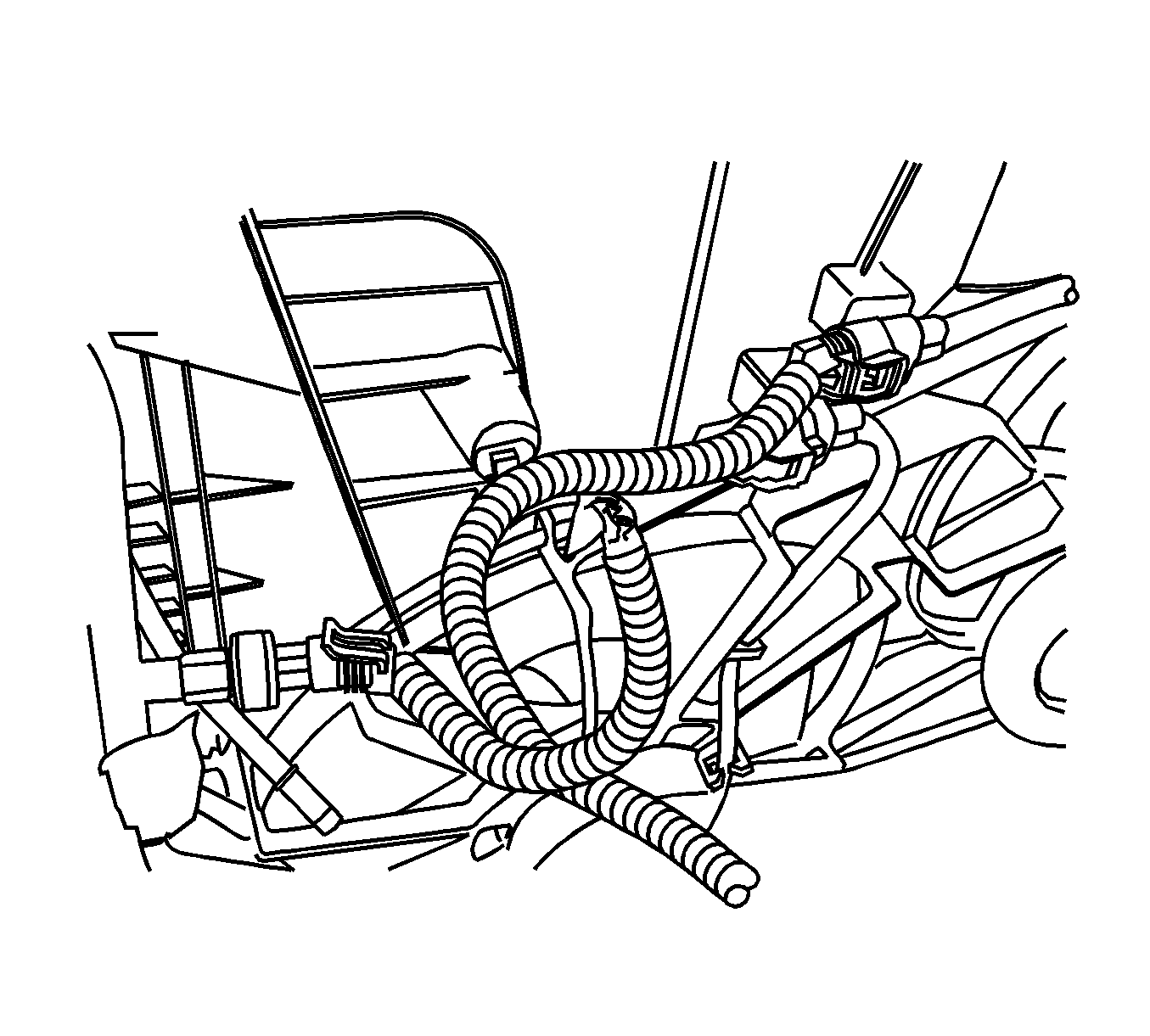
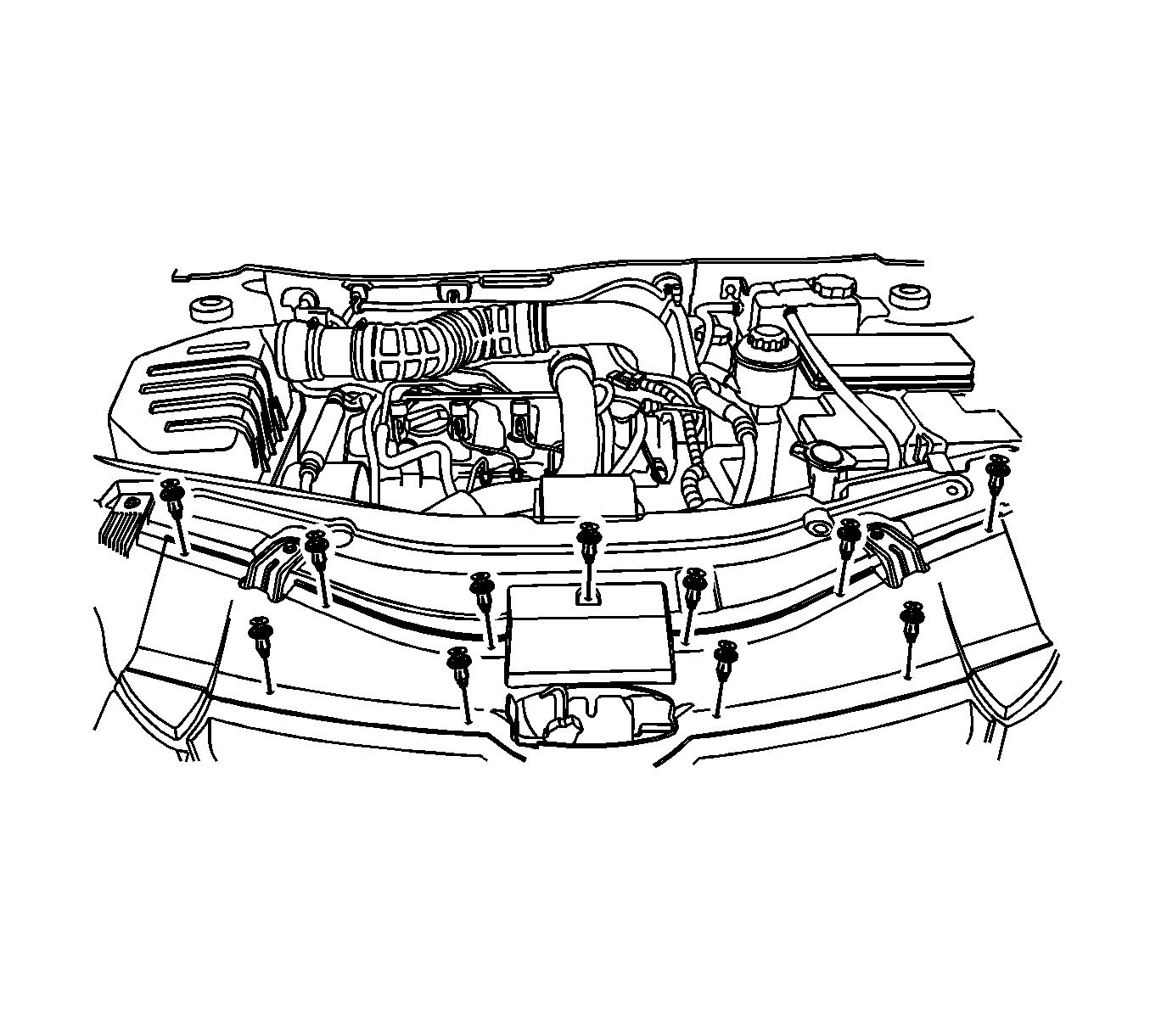
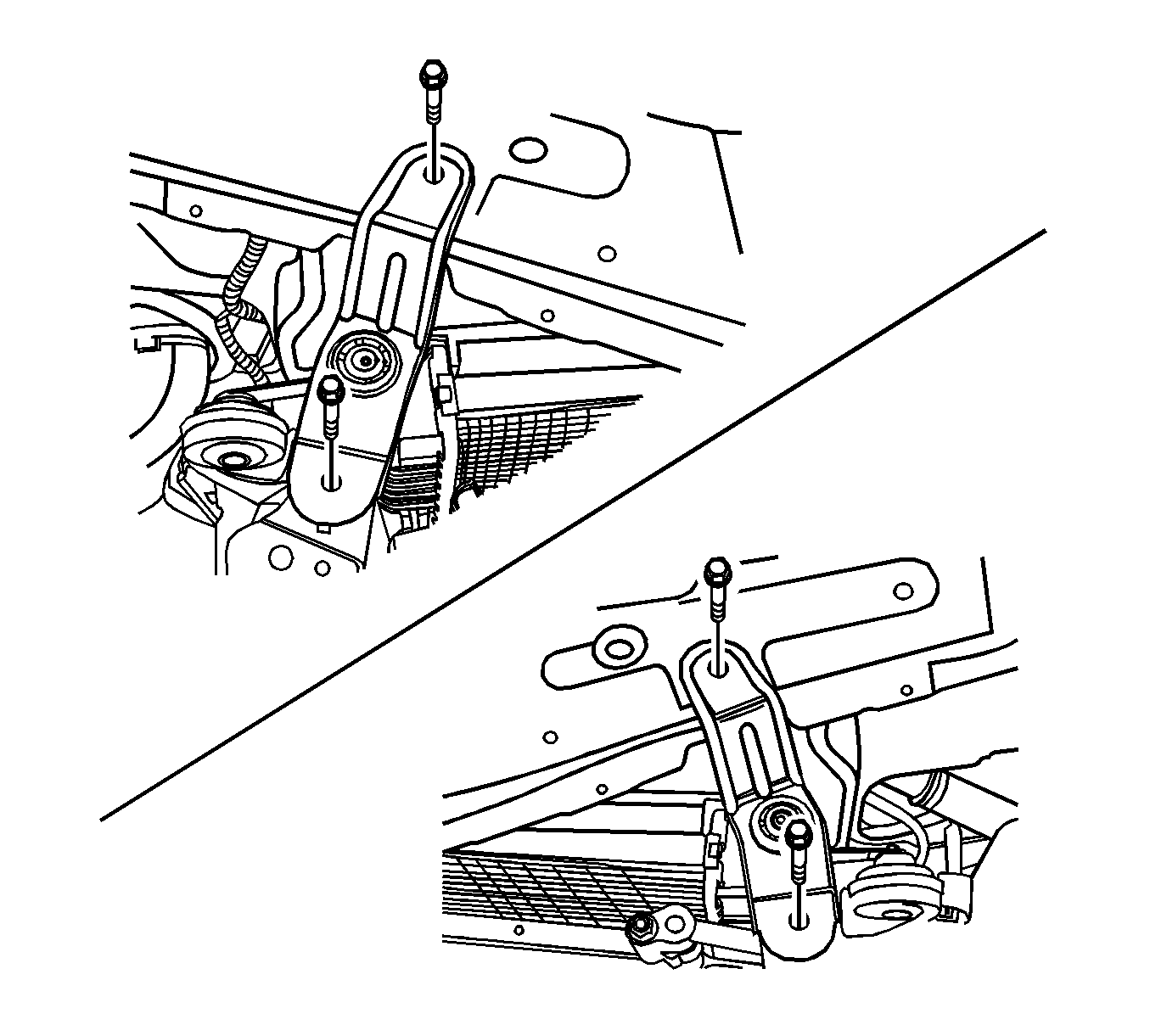
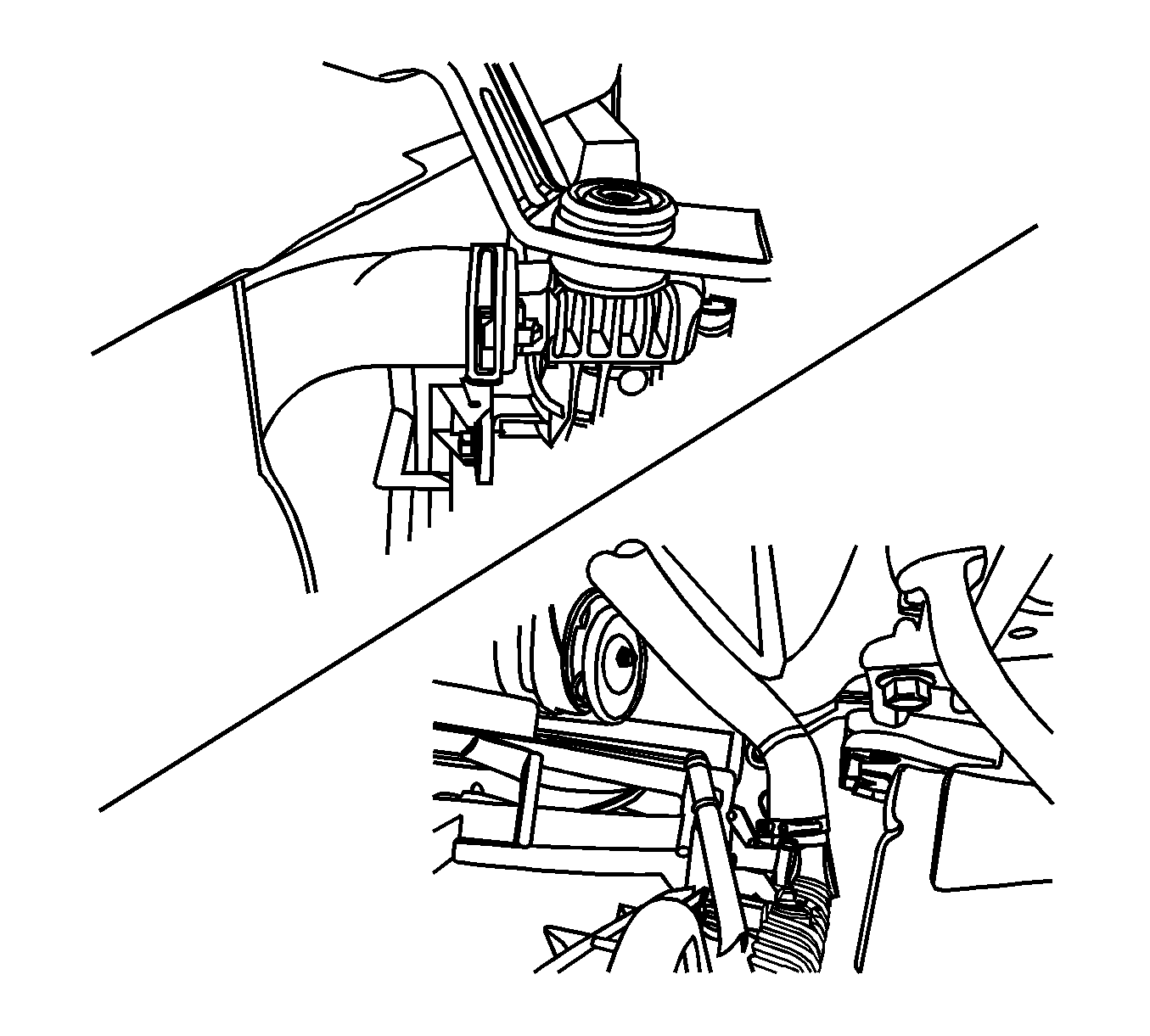
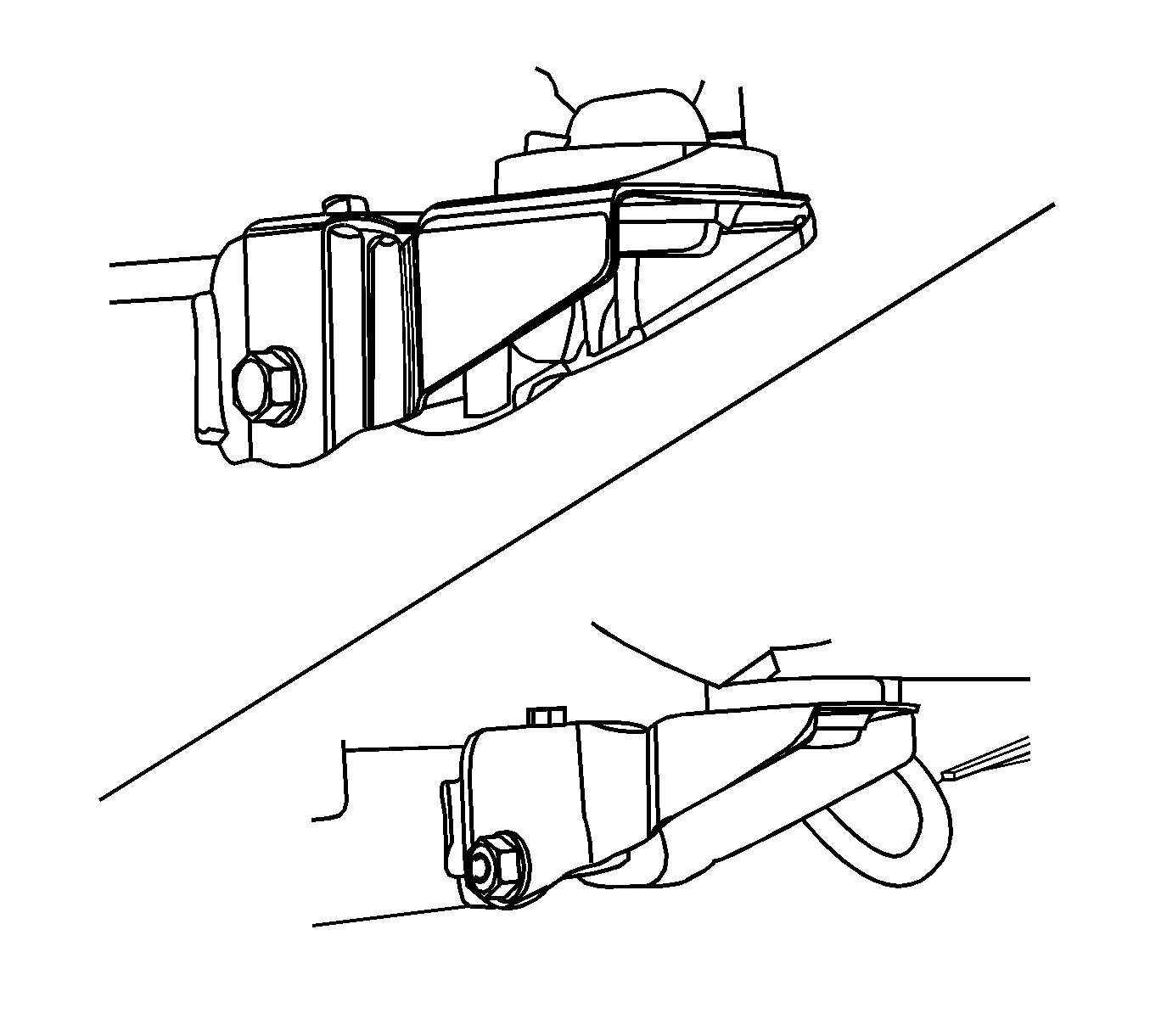
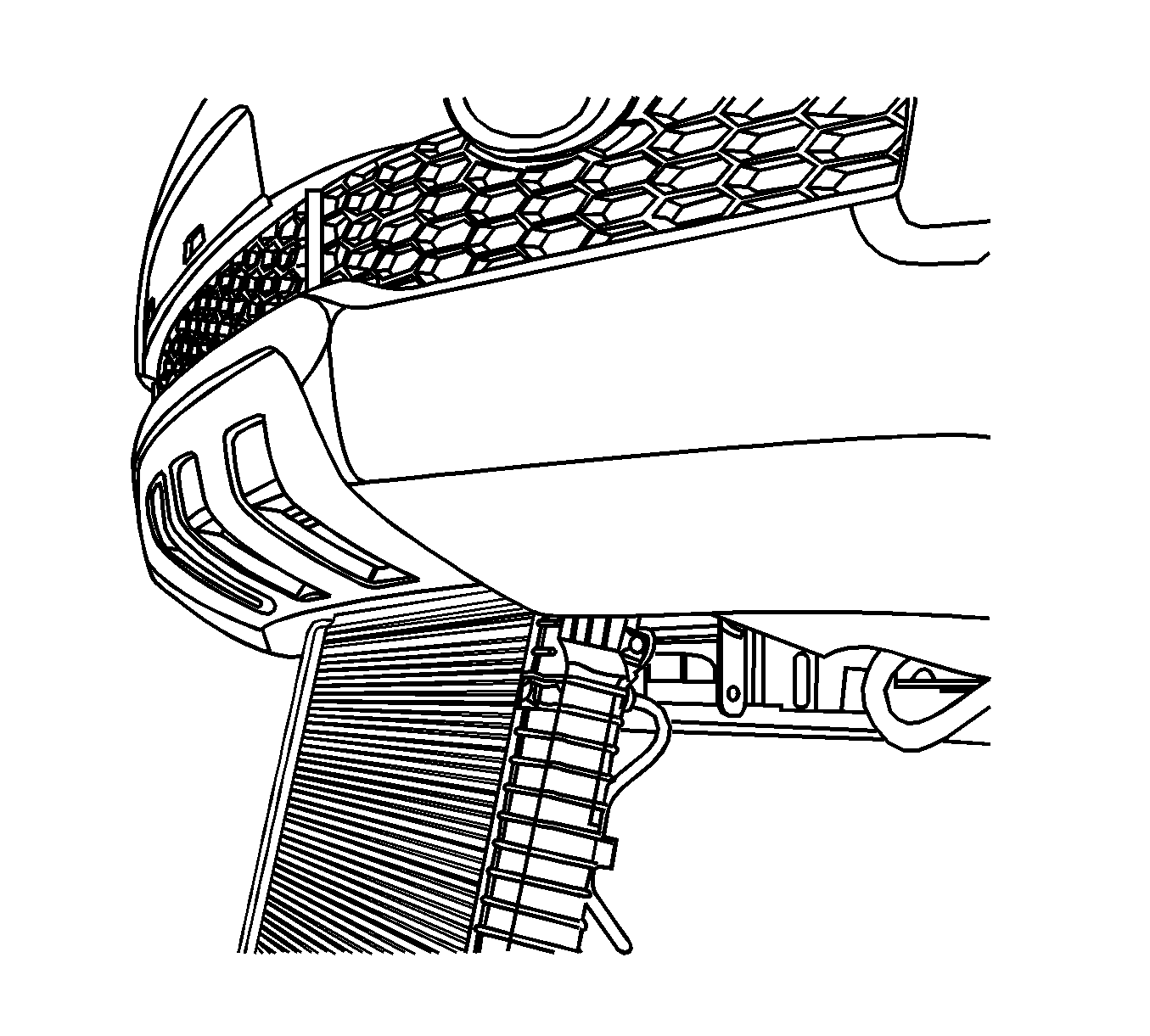
Notice: The heat exchanger fins are necessary for good heat transfer. Do not brush the fins. This may cause damage to the fins, reducing heat transfer.
Important: Remove the bugs, leaves, dirt and other debris by blowing compressed air through the engine side of the radiator.
Some conditions may require the use of warm water and a mild detergent.| • | Clean the radiator cooling fins. |
| • | Straighten any damaged cooling fins. |
Installation Procedure
- Install the cooling fan assembly if necessary.
- Install the radiator.
- Carefully lift the radiator into the position previously removed.
- Install the both CRFM assembly support brackets.
- Install the CRFM assembly support bracket through bolts and nuts.
- Install the CRFM assembly support bracket mounting upper bolts.
- Connect the lower radiator hose to the radiator and then secure the clamp.
- Connect the upper radiator hose to the radiator and then secure the clamp.
- Connect the transaxle cooler pipes to the radiator, if equipped.
- Connect the coolant return hose.
- Install the A/C condenser to the radiator.
- Install the radiator upper brackets.
- Install the radiator grill upper guide. Refer to Grille Replacement .
- Install the engine cover bracket and then the engine cover.
- Fill the engine cooling system. Refer to Cooling System Draining and Filling .
- Connect the negative battery.


Notice: Refer to Fastener Notice in the Preface section.
Tighten
Tighten the CRFM assembly support bracket through bolts and nuts to 50 N·m (37 lb ft).
Tighten
Tighten the CRFM assembly support bracket mounting upper bolts to 50 N·m (37 lb ft).


Tighten
Tighten the radiator upper bracket retaining bolts to 20 N·m (15 lb ft).

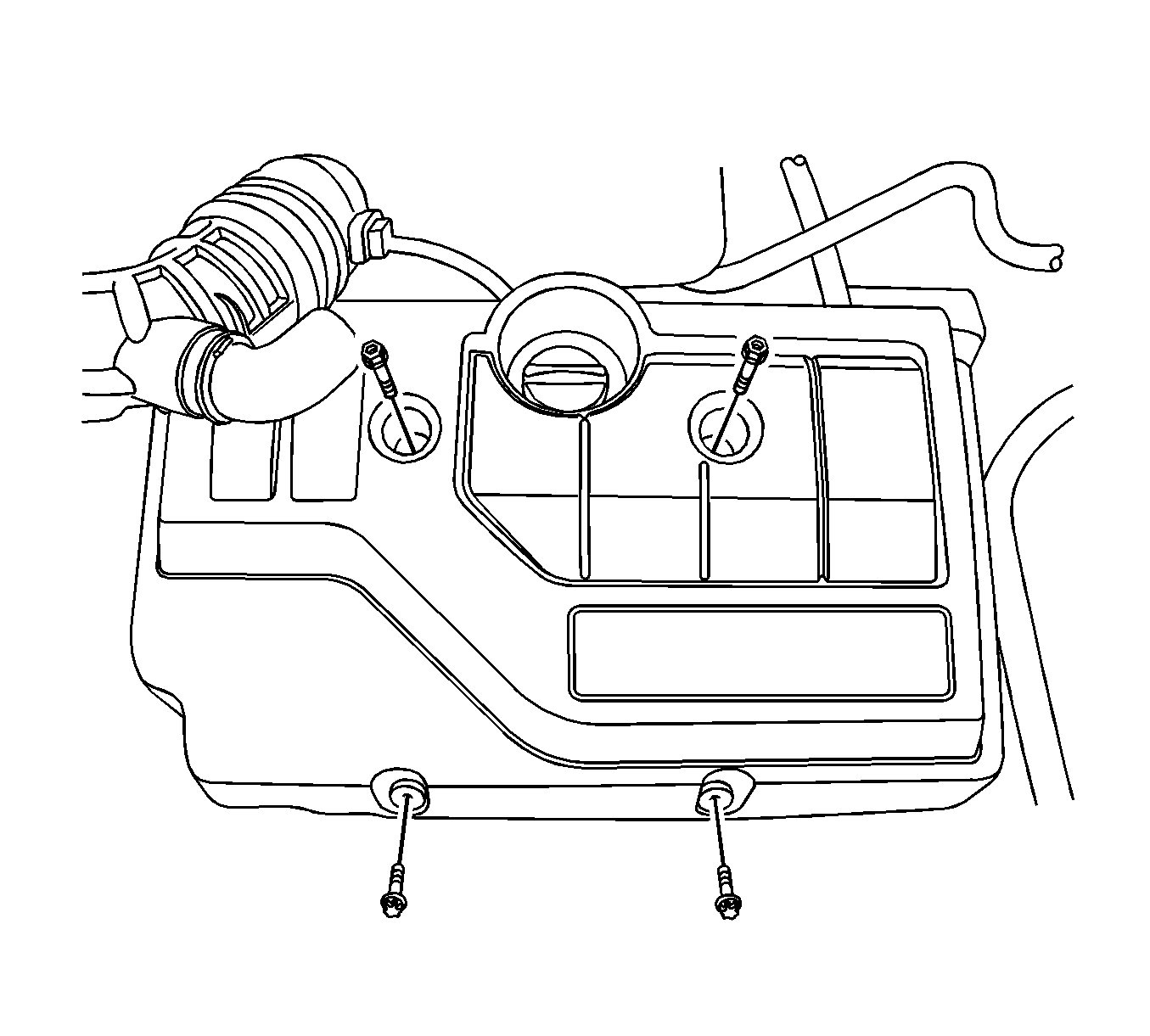
Radiator Replacement Diesel Engines
Removal Procedure
- Remove the engine cover. Refer to Engine Cover Replacement .
- Remove the charge air cooler inlet/outlet hoses. Refer to Charge Air Cooler Inlet Pipe and Outlet Pipe Replacement .
- Drain the engine coolant. Refer to Cooling System Draining and Filling .
- Remove the radiator grill upper guide. Refer to Grille Replacement .
- Remove the engine undercover. Refer to Engine Shield Replacement .
- Discharge the A/C system, if equipped. Refer to Refrigerant Recovery and Recharging .
- Remove the radiator upper bracket.
- Disconnect the transaxle oil cooler line from the automatic transaxle, if equipped.
- Disconnect the radiator upper/lower hoses from the radiator.
- Remove the A/C condenser inlet/outlet pipes from the A/C condenser, if equipped. Refer to Condenser Replacement .
- Remove the radiator lower bracket from the cradle.
- Carefully lower the radiator and fan assembly from the vehicle.
- Remove the radiator assembly.
- Remove the transaxle oil cooler and line, if equipped.
- Remove the A/C condenser.
- Remove the charge air cooler.
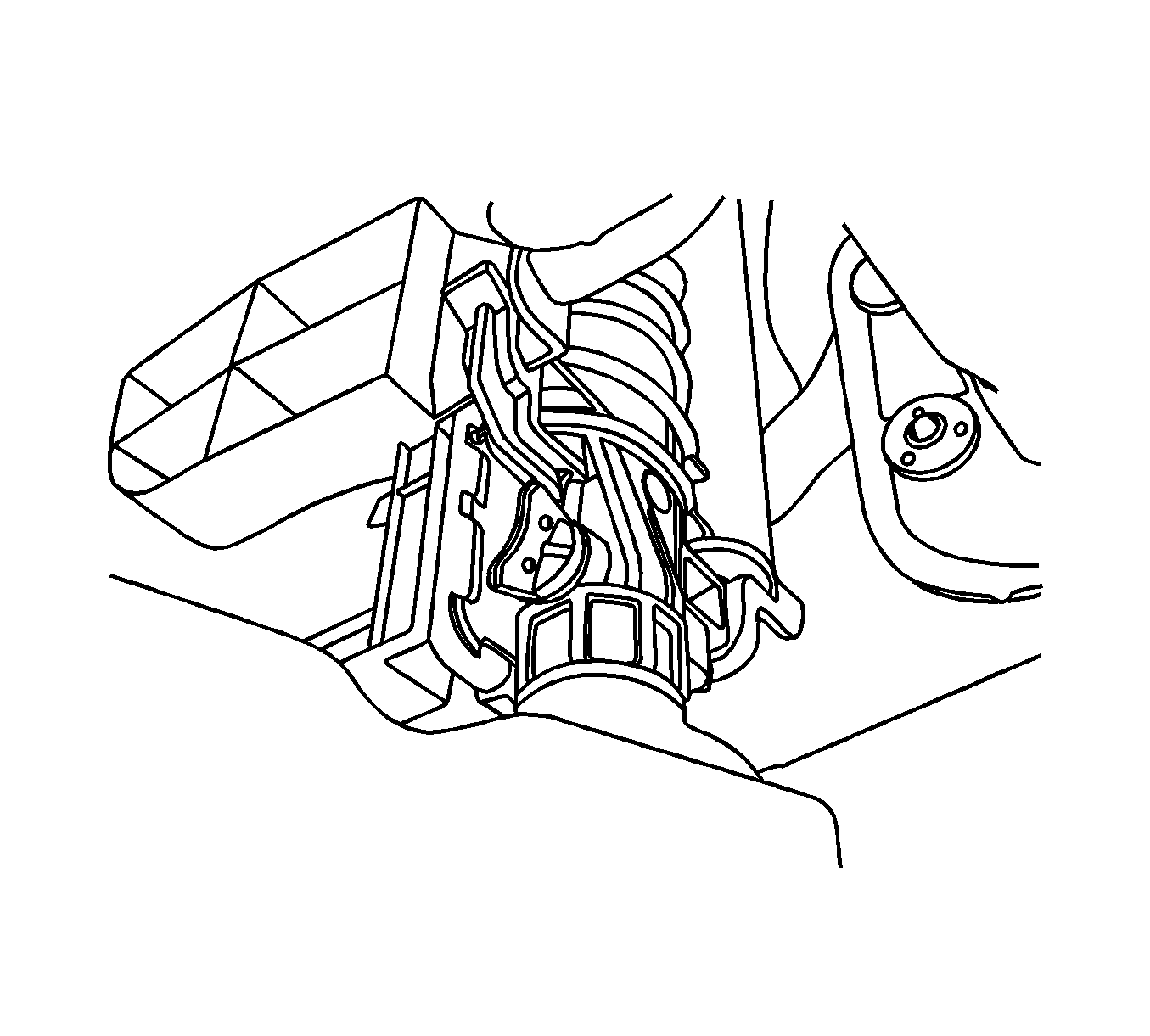
Caution: To avoid being burned, do not remove the radiator cap or surge tank cap while the engine is hot. The cooling system will release scalding fluid and steam under pressure if radiator cap or surge tank cap is removed while the engine and radiator are still hot.



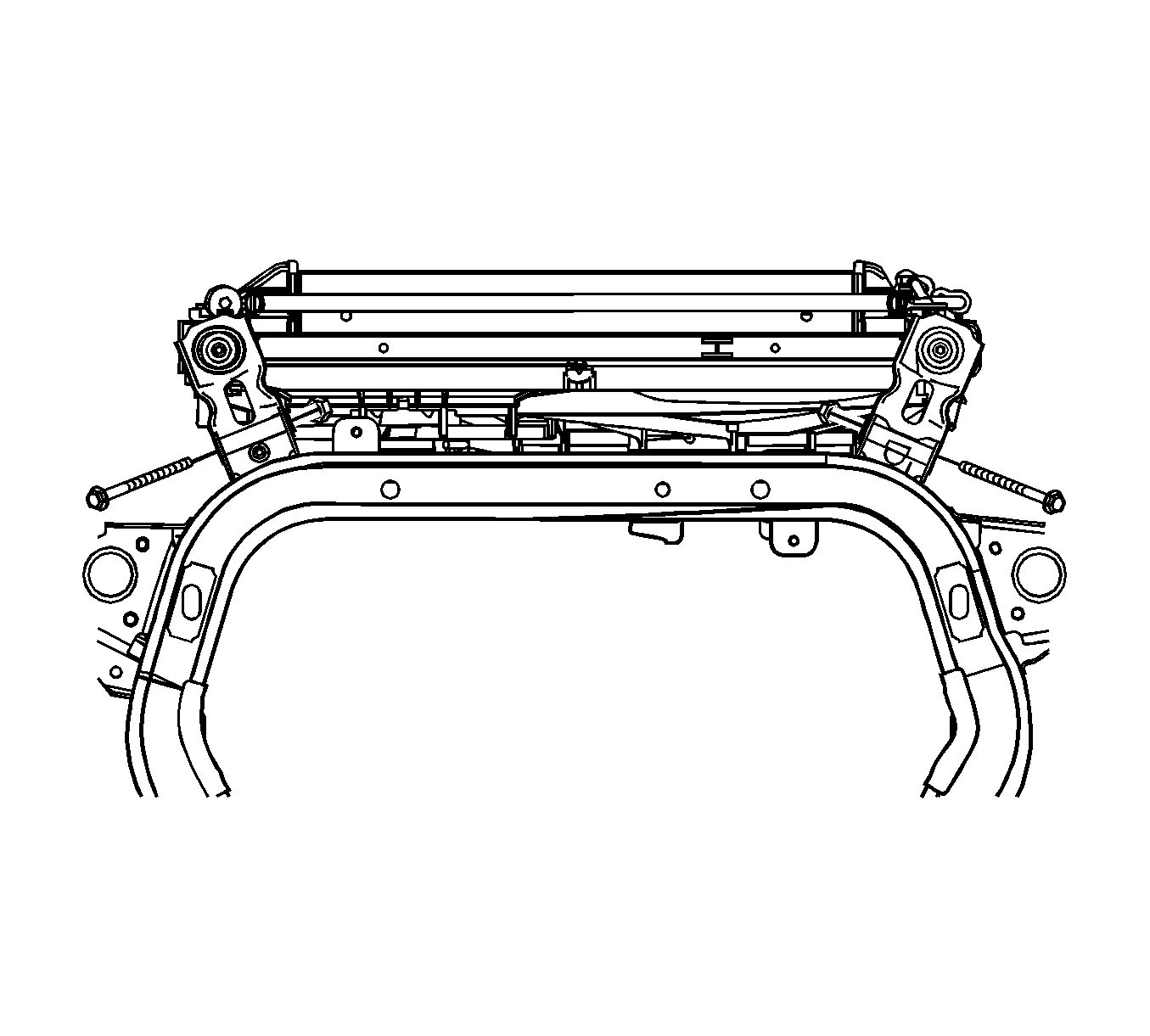
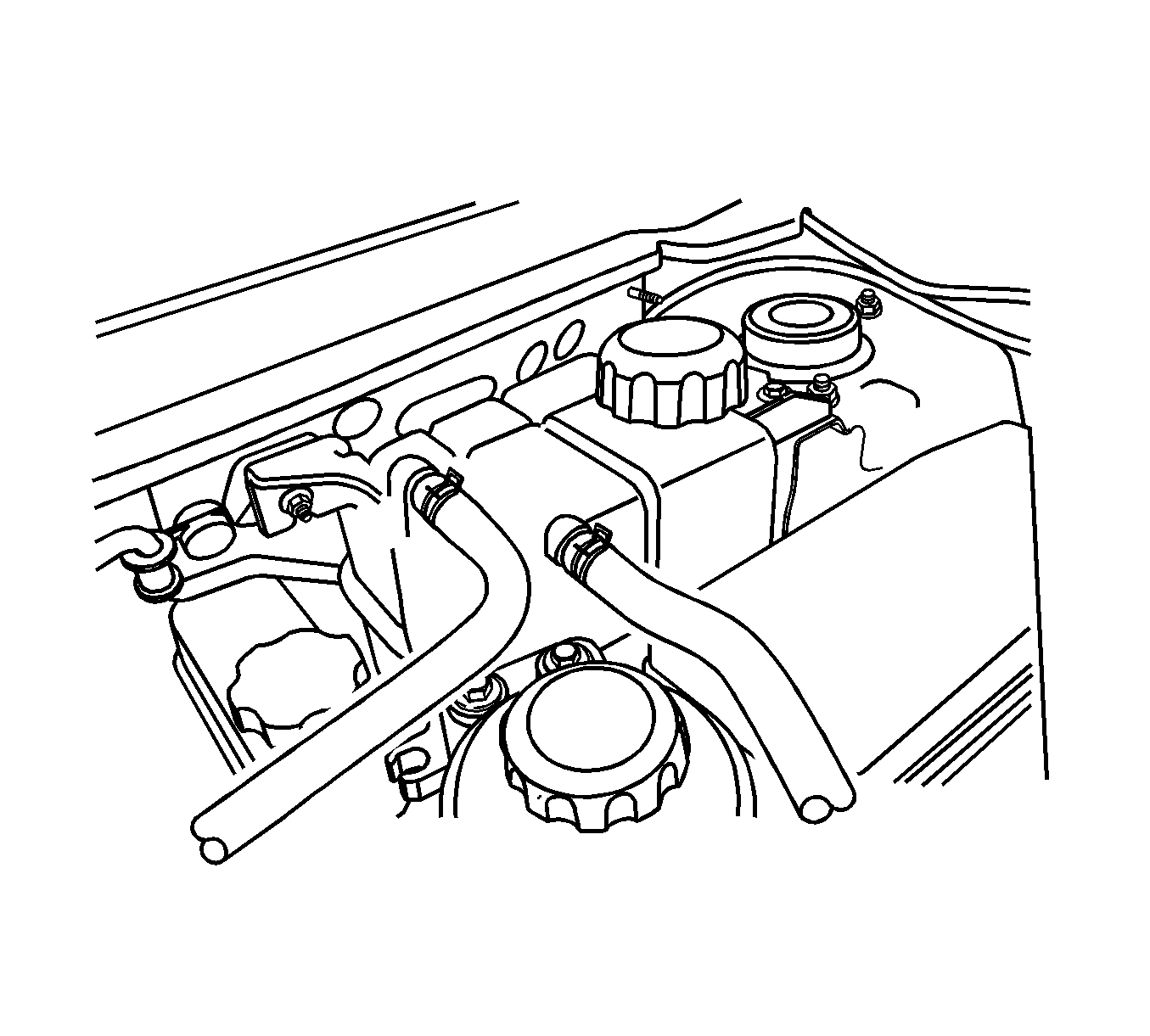
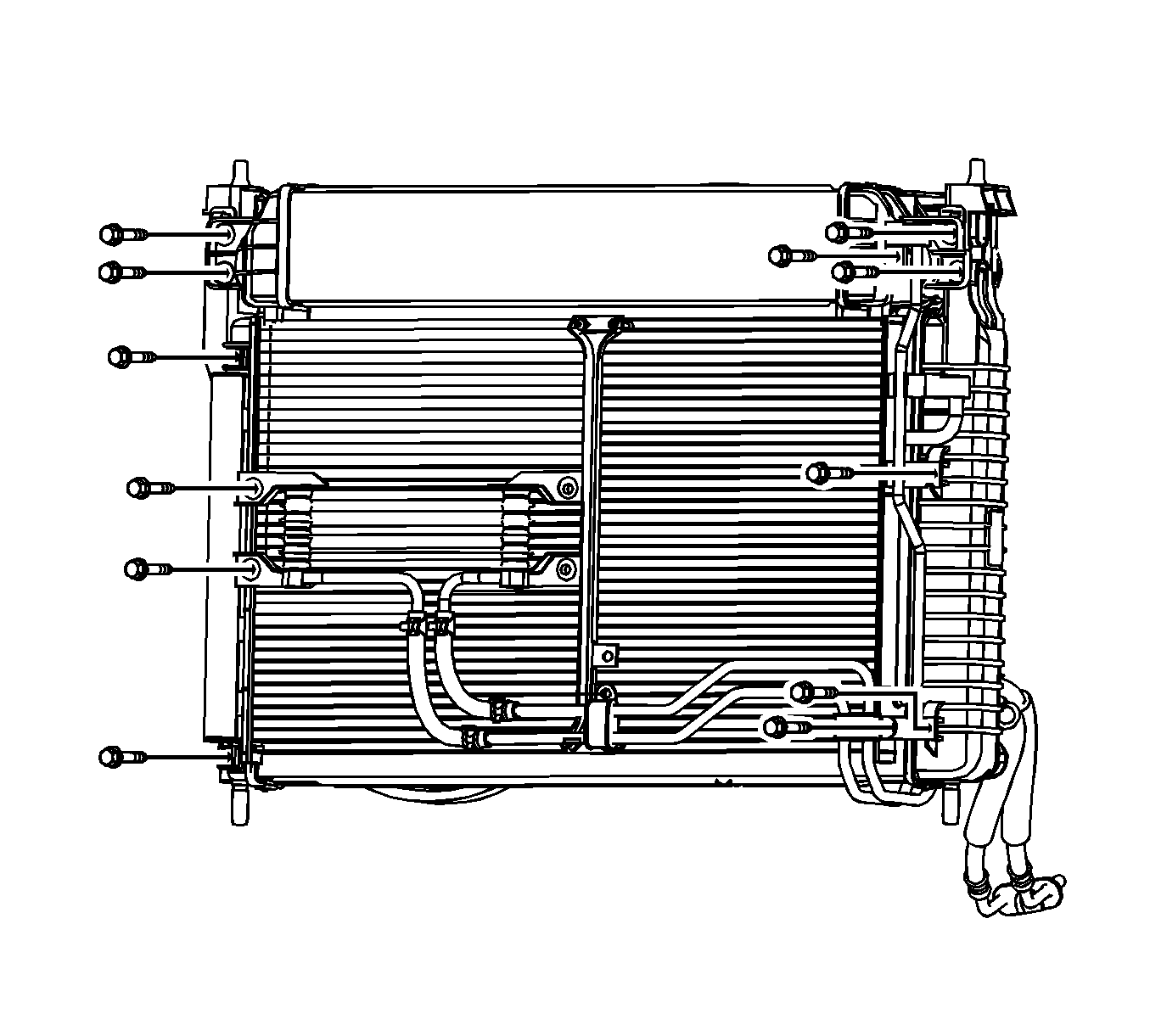
Cleaning Procedure

Important: The radiator fins are necessary for good heat transfer. Do not brush the fins. This may cause damage to the fins, reducing heat transfer.
Remove bugs, leaves, dirt and other debris by blowing compressed air through the engine side of the radiator. Some conditions may require the use of warm water and a mild detergent.
| • | Clean the radiator cooling fins. |
| • | Straighten any damaged cooling fins. |
Installation Procedure
- Install the charge air cooler.
- Install the A/C condenser.
- Install the transaxle oil cooler and line, if equipped.
- Install the radiator assembly.
- Install the radiator lower bracket to the cradle.
- Install the radiator upper bracket retaining.
- Install the engine undercover. Refer to Engine Shield Replacement .
- Install the radiator grill upper guide. Refer to Grille Replacement .
- Install the charge air cooler inlet/outlet hoses. Refer to Charge Air Cooler Inlet Pipe and Outlet Pipe Replacement .
- Install the engine cover. Refer to Engine Cover Replacement .
- Fill the engine cooling system. Refer to Cooling System Draining and Filling .
- Charge the A/C system, if equipped. Refer to Refrigerant Recovery and Recharging .

Notice: Refer to Fastener Notice in the Preface section.
Tighten
| • | Tighten the charge air cooler retaining bolts to 8.5 N·m (75.2 lb in). |
| • | Tighten the A/C condenser retaining bolts to 16 N·m (11.8 lb ft). |
| • | Tighten the transaxle oil cooler and line retaining bolts to 10 N·m (88.5 lb in). |


Tighten
Tighten the radiator lower bracket bolts and nuts to 50 N·m (36.9 lb ft).

Tighten
Tighten the radiator upper bracket bolts 20 N·m (14.8 lb ft).


